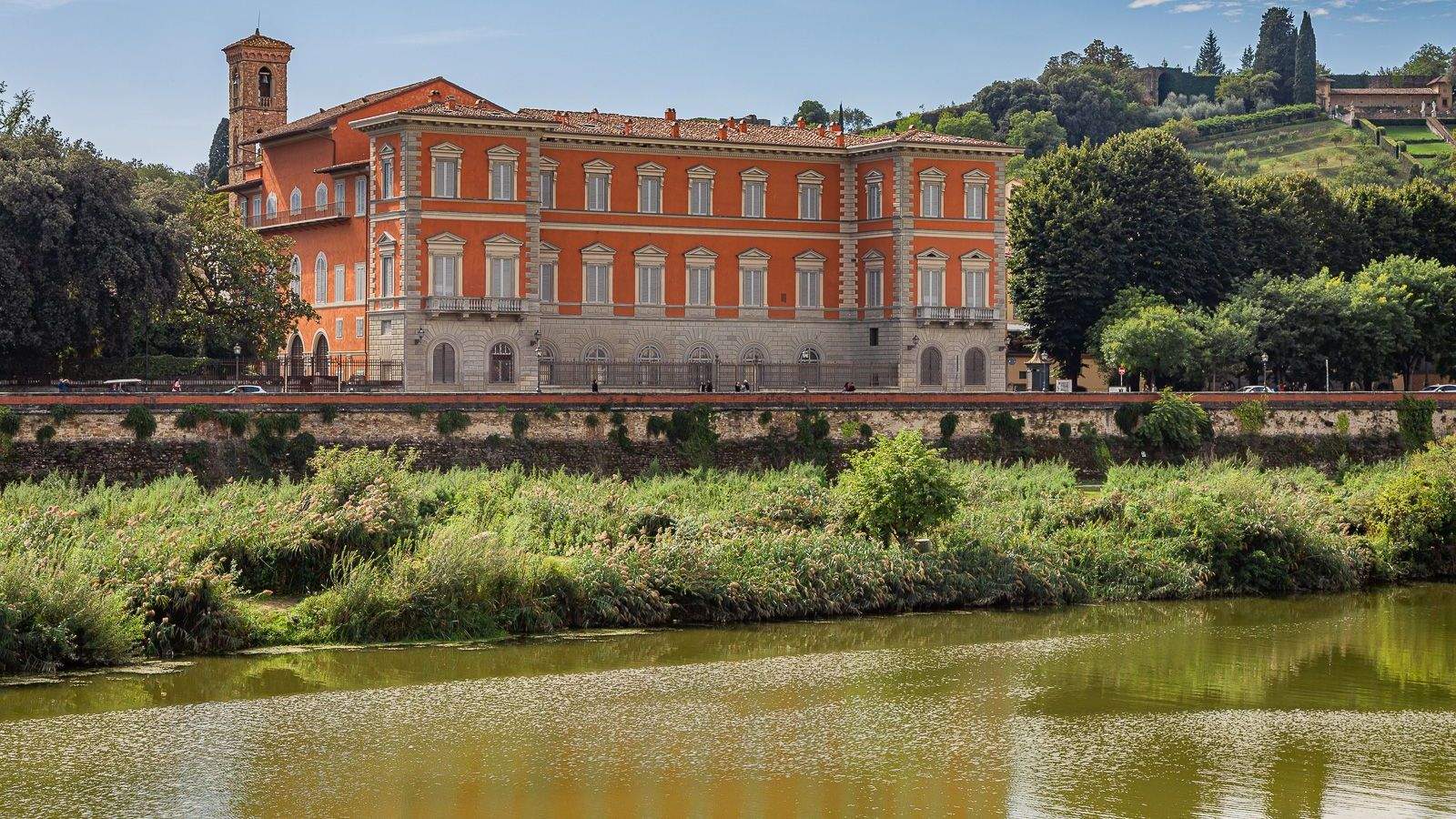Restoration work is starting in Florence on Palazzo Serristori, one of the city’s most imposing buildings, until recently owned by the heirs of the family that gives it its name and who had it built in the 1620s, commissioned by Lorenzo Serristori (the design is possibly due to Giuliano and Antoniod a Sangallo, but we have no certainty about the architect’s name). Over time, the residence expanded to its present scenic appearance, a large block with two wings, divided into three floors marked by large tympanum windows, with ashlar on the ground floor (the facade, however, is the only element of the palace to retain its 16th-century appearance). In the 19th century it hosted illustrious personalities, such as the Demidoff family, and Joseph Bonaparte, Napoleon’s brother, who resided for a long time in an apartment in the palace. Then again, within its walls stayed the poets Byron and Shelley, the composers Puccini and Rossini, as well as Wagner and Richard Strauss.
Many elements are still preserved intact from centuries past: the large 250-square-meter frescoed hall (it will become a common space for residents), the Hall of Mirrors, the glazed stove of the Ginori manufactory, some remains of the corridor that joined Palazzo Serristori to the bank of the Arno (in fact, the building is a short distance from the river that bathes Florence).
The palace was purchased in March by a Taiwanese group, Ldc Residences, which has begun renovation work to turn it into a luxury residence: units are already for sale on the website of Lionard Luxury Estate, an agency that sells luxury properties. “The magnificent palace, 5,500 square meters in total area,” the agency describes it, “is spread over five floors and still has priceless original elements that are well preserved, such as precious frescoes, marble fireplaces, a large terracotta stove, and impressive Murano chandeliers from the 1700s that stand out in the grand ballroom. The latter, which is considered the largest ballroom in the city thanks to its 250 sq. m. amplitude, will be used as a common area for all the apartments, as well as the SPA, fitness area, swimming pool and garden, measuring 2,748 sq. m. in size. The building will have three independent entrances, each provided by a convenient elevator connecting the floors.”
Lionard has put up a dozen apartments for sale: ranging from 170 square meters for the smallest to 500 square meters for the largest. The latter has 2 bedrooms, 3 bathrooms, a spa, a fitness area, an 89-square-meter basement, and a private garden. The others, however, have access to a condominium fitness area, a spa also for all, and even a communal equipped pool. For some apartments, the 19th-century frescoes and stucco decorating the rooms are presented as pluses to entice buyers to purchase. Negotiations, as is often the case with properties of this caliber, are confidential.
The opposition in the city council, however, is going on the attack on the deal: according to Dmitry Palagi and Antonella Bundu of Sinistra Progetto Comune, it is “a loss of another piece of the city.” “A use of the past,” the two councilors declare, “that becomes an opportunity for rent and an extra luxury market that continues to be unaffected by the crisis. In the midst of the Covid-19 pandemic, those who are rich continue to flaunt their exclusive status, while thousands of families and the working classes in general look to a future of uncertainty and precariousness. Is this the new renaissance that Mayor and Council envision? Pieces of the city taken away from those who live there and reserved for an absolute minority that even in the midst of the Covid-19 pandemic can continue to flaunt its social privileges? Is this the free market that right-wingers would like to see raging, perhaps without paying taxes? What kind of economy and labor does this kind of operation produce? The Middle Ages, the modern age and the Medici are the mask behind which to disguise the logic of profit that drives the present time. A city increasingly emptied of its residence, where precariousness and inequality are growing stronger.”
 |
| Florence, Palazzo Serristori will become extra-luxury residence. The left attacks |
Warning: the translation into English of the original Italian article was created using automatic tools. We undertake to review all articles, but we do not guarantee the total absence of inaccuracies in the translation due to the program. You can find the original by clicking on the ITA button. If you find any mistake,please contact us.